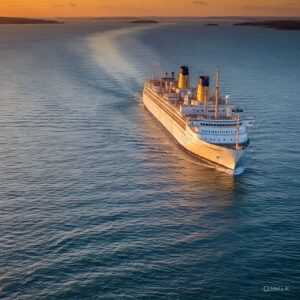Kochi’s Role in India’s Growing Blue Economy

Kochi’s Pivotal Role in India’s Expanding Blue Economy: A Maritime Powerhouse Driving Sustainable Growth
India’s blue economy is gaining unprecedented momentum as the nation taps into the vast potential of its coastal and marine resources. Among the coastal cities propelling this growth, Kochi, Kerala’s commercial capital, stands out as a dynamic hub. With its strategic location, cutting-edge port infrastructure, flourishing fisheries sector, and focus on sustainable innovation, Kochi is at the heart of India’s journey toward a sustainable and prosperous blue economy.
In this article, we explore Kochi’s vital contributions, emerging opportunities, and challenges in shaping India’s blue economy in 2025 and beyond.
What is the Blue Economy?
The blue economy encompasses economic activities linked to oceans, seas, and coastal areas that promote sustainable growth, employment, and environmental stewardship. Key sectors include:
-
Maritime trade and ports
-
Fisheries and aquaculture
-
Marine biotechnology and research
-
Coastal and marine tourism
-
Renewable ocean energy (wind, tidal, wave)
-
Marine conservation and ecosystem management
With a coastline stretching over 7,500 km, India is perfectly poised to become a global leader in the blue economy. Kochi, in particular, is emerging as a critical node connecting India’s maritime ambitions to global markets.
Kochi’s Strategic Edge in India’s Blue Economy
1. World-Class Port Infrastructure and Logistics Hub
Kochi’s deep-water port is a natural harbor uniquely positioned on the Arabian Sea, offering an ideal maritime gateway for international shipping and trade. The port’s modernization efforts, including the establishment of the Vallarpadam International Container Transshipment Terminal (ICTT) — India’s first transshipment hub — are game changers.
The ICTT reduces India’s dependence on foreign ports like Colombo and boosts national maritime logistics efficiency. Moreover, Kochi Port is now capable of handling mega container vessels, supporting the government’s vision under the Sagarmala Project to enhance port connectivity and coastal economic zones.
Thanks to these developments, Kochi is cementing its place as a vital logistics and shipping hub, facilitating faster, cost-effective trade with the Middle East, Europe, and Africa.
2. Thriving and Sustainable Fisheries & Aquaculture
Kochi has long been a center for fisheries and seafood exports, contributing significantly to India’s seafood industry. The city’s coastal waters are rich in diverse fish species, making fishing a primary livelihood for many coastal communities.
More importantly, Kochi is advancing sustainable fishing practices and innovative aquaculture methods. Modern shrimp farming, hatchery management, and fishery technology improve yield while conserving marine biodiversity. This sustainable approach not only supports food security but also aligns with global environmental standards, enhancing export potential.
3. A Hub for Marine Biotechnology and Ocean Research
Kochi is home to prestigious marine research institutions like the Central Marine Fisheries Research Institute (CMFRI) and the National Institute of Oceanography (NIO). These centers lead pioneering research in marine biodiversity, fisheries management, and marine bioprospecting.
Emerging research in marine biotechnology is unlocking novel applications—from pharmaceuticals and nutraceuticals to biofuels and environmentally friendly materials. Kochi’s research ecosystem is crucial for nurturing innovation within India’s blue bioeconomy, offering new growth avenues beyond traditional sectors.
4. Coastal and Marine Tourism: Sustainable and Experiential
Tourism along Kochi’s coastline and nearby backwaters is a vital component of the blue economy. The city’s rich cultural heritage, combined with its scenic coastal landscapes, attracts millions annually.
Increasingly, Kochi is focusing on eco-friendly and sustainable tourism models that emphasize marine conservation and community participation. Initiatives include marine parks, responsible beach tourism, and promoting local crafts and cuisine. These efforts not only generate employment but also enhance awareness of marine ecosystems, balancing economic benefits with environmental care.
5. Renewable Ocean Energy Initiatives and Environmental Stewardship
As India accelerates its commitment to clean energy, Kochi is exploring ocean-based renewable energy options such as tidal and wave power. These initiatives align with the nation’s net-zero emissions goals and promise to generate green jobs in coastal areas.
Furthermore, Kochi actively promotes marine ecosystem protection through mangrove restoration, coral reef conservation, and pollution control measures. Such environmental stewardship is essential for sustaining the blue economy over the long term.
How Kochi Aligns with India’s National Blue Economy Vision
The Government of India’s National Blue Economy Policy prioritizes sustainable development, innovation, and equitable growth. Kochi’s multifaceted role fits seamlessly within this framework:
-
Enhancing Exports: Kochi’s port and fisheries boost India’s seafood and maritime trade exports.
-
Job Creation: The blue economy sectors in Kochi support thousands of livelihoods, from fishermen to researchers and port workers.
-
Sustainability: Kochi’s emphasis on eco-friendly practices and marine conservation mirrors India’s environmental commitments.
-
Innovation: Marine biotechnology and research initiatives foster cutting-edge innovation.
-
Improved Connectivity: Infrastructure upgrades support India’s goal of becoming a global maritime logistics leader.
Challenges and the Road Ahead for Kochi
While Kochi is poised for continued growth, several challenges need addressing:
-
Climate Change: Rising sea levels and extreme weather events threaten coastal infrastructure and fisheries.
-
Pollution: Marine pollution from industrial and urban sources impacts water quality and marine life.
-
Resource Management: Sustainable fisheries management is critical to prevent overfishing and habitat degradation.
-
Infrastructure Expansion: Continued investment in port capacity and coastal resilience is essential to stay competitive.
At the same time, new opportunities beckon:
-
Scaling offshore renewable energy projects.
-
Expanding eco-tourism and blue biotechnology sectors.
-
Strengthening international maritime cooperation.
-
Promoting community-led marine conservation efforts.
Conclusion: Kochi — India’s Blue Economy Beacon
In 2025, Kochi continues to shine as a maritime powerhouse central to India’s blue economy ambitions. Its advanced port facilities, thriving fisheries, vibrant research ecosystem, and commitment to sustainability make it a model coastal city for balanced growth.
For policymakers, entrepreneurs, environmentalists, and travelers, Kochi exemplifies how coastal cities can harness marine resources responsibly while driving economic prosperity. As India advances its blue economy agenda, Kochi’s role will only grow more vital, setting benchmarks for sustainable maritime development nationwide.
0 Comments